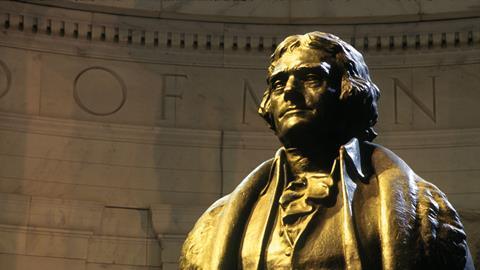An absorbing defence of the separation of powers
Judicial Independence Under Threat
Edited by Dimitrios Giannoulopoulos and Yvonne McDermott
£70, Oxford University Press
★★★★✩
This compilation of essays focuses on a subject of enormous sensitivity, which resonates from its title. The collection derives from proceedings of the British Academy in 2018 and is dedicated to the late Supreme Court Justice, Lord Kerr of Tonaghmore. He attended the academy’s 2018 conference and was able to contribute a foreword to this book. The essays were written between 2018 and 2020, and updated in 2021 to take account of developments in this fast-moving area of law and jurisprudence.
The contributors are mainly eminent academics from legal and social science backgrounds, both from the UK and overseas, but also include practising or retired barristers and judges. The volume is written from the perspective of those who, in a liberal democracy, want to ensure that judicial independence, and wider notions of the separation of powers between the judiciary, legislature and executive organs of the state, should be protected in the interests of its citizens.
It analyses what constitutes ‘judicial independence’ and in what respects it can be said to be ‘under threat’. As contributor Dominic Grieve KC notes, this ‘is a reflection of the concern that judicial independence is under threat and, as Lord Thomas [the former lord chief justice and another contributor] writes, requires “constant vigilance” to preserve’.
The editors contribute a strong introductory chapter, ‘The Judiciary Under Attack (and Why Safeguarding Judicial Independence Matters)’; and a succinct concluding chapter, ‘On “Crisis” and Threats to Judicial Independence as Constant Features in the Landscape of Judicial Activity’.
Brexit features heavily. The essays also include submissions on the rise of populist governments around the world and the perceived threats such regimes pose to judicial independence and the rule of law. Recent events in Poland and Hungary are used as examples from countries which give rise to such concerns. Also considered are events in Myanmar and other countries which are not liberal democracies and where judicial independence and the safeguarding of human rights barely exist, if at all.
The book also contains a number of essays on other diverse subjects which are perhaps less high-profile from a political and journalistic perspective than the hot topics of populism and Brexit, but are of profound significance to those who care about the administration of justice.
It is divided into three main parts: Part I (‘Identifying and Understanding Threats to Judicial Independence’); Part II (‘Judicial Independence: International and Historical Perspectives’); and Part III (‘Judicial Independence in Context: From Criminal Justice to “Law and Emotions” Studies and Looking to the Future of Judicial Independence’). The 14 essays contained within those parts are serious works of scholarship as well as being very focused on events in the real world.
Judicial Independence under Threat has an eye-catching title but a deep purpose. This can be summarised in the concluding paragraph of Lord Thomas’s essay, namely that ‘What matters is the judiciary should be proactively vigilant, particularly when times are good. There is no time for complacency or a lack of vigilance’. This has echoes of Thomas Jefferson (statue pictured above), for whom it was said that ‘the price of liberty is eternal vigilance’.
The book is an absorbing read and deserves to attract a wide audience.
David Glass is a consultant solicitor at Excello Law
































No comments yet